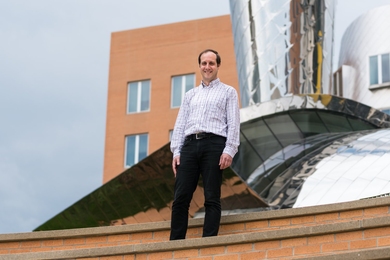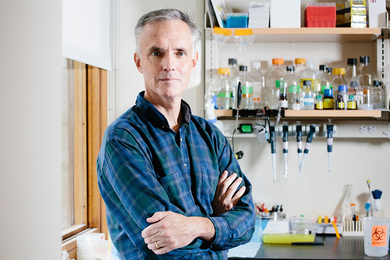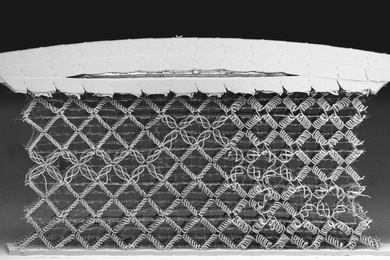A project to bridge ecology and bioengineering to benefit human health and a study on urban development in steep-slope areas are among the MIT research collaborations in Greater China that will receive funding as part of a new program administered by the MIT International Science and Technology Initiatives (MISTI) Global Seed Funds.
The Institute this year established the $20 million MIT Greater China Fund for Innovation, $2 million of which has already been fulfilled. The fund is intended to facilitate early stage joint research between Chinese universities, research centers, and industry and MIT faculty. Six research projects have been selected as part of the inaugural round of funding.
Now in its third year, the MISTI Global Seed Funds began with funding from the Office of the Provost to enhance the internationalization of MIT research and education. The program is composed of a general pool for projects in any country and country-specific funds for Brazil, China, France, Germany, India, Italy, Japan and Spain.
Seed funds are a vital part of the MIT strategy to internationalize MIT research and education. “We are confident that the innovations the China seed fund will produce will give faculty and students opportunities to expand their talents in new directions and consider new perspectives,” says Associate Provost and Ford International Professor of History Philip S. Khoury. “We also hope the seed fund will consolidate the already-strong ties between MIT and Greater China, which we are committed to strengthening and expanding.”
Following is the list of 2010-2011 MIT Greater China Fund for Innovation funding recipients:
From Xining to Kunming, Dalian to Taipei, MISTI-China projects prepare MIT students to work in diverse local settings and participate in the rapidly expanding world of Chinese business and technology. MIT’s largest international program, MISTI is a pioneer in applied international studies. Each year, the program places more than 500 MIT students in professional internships and research positions with its network of leading companies, universities, research institutes and NGOs around the world. The program is a part of the Center for International Studies.
The next MIT Greater China Fund for Innovation call for proposals will be announced in May 2011 with a proposal deadline in early fall. More details are available on the MISTI-China website.
The Institute this year established the $20 million MIT Greater China Fund for Innovation, $2 million of which has already been fulfilled. The fund is intended to facilitate early stage joint research between Chinese universities, research centers, and industry and MIT faculty. Six research projects have been selected as part of the inaugural round of funding.
Now in its third year, the MISTI Global Seed Funds began with funding from the Office of the Provost to enhance the internationalization of MIT research and education. The program is composed of a general pool for projects in any country and country-specific funds for Brazil, China, France, Germany, India, Italy, Japan and Spain.
Seed funds are a vital part of the MIT strategy to internationalize MIT research and education. “We are confident that the innovations the China seed fund will produce will give faculty and students opportunities to expand their talents in new directions and consider new perspectives,” says Associate Provost and Ford International Professor of History Philip S. Khoury. “We also hope the seed fund will consolidate the already-strong ties between MIT and Greater China, which we are committed to strengthening and expanding.”
Following is the list of 2010-2011 MIT Greater China Fund for Innovation funding recipients:
- Mapping Antigenic Evolution of Influenza Viruses in China — Jianzhu Chen, Department of Biology
- Illuminating the Primordial Quark-Gluon Liquid — Gunther Roland, Department of Physics
- Non-Democratic Accountability: Experiments with Citizen Contacting in China — Edward Steinfeld, Department of Political Science
- Solar Thermoelectric Generator for Micro-Power Application — Rajeev Ram, Department of Electrical Engineering and Computer Science
- An MIT-China Collaboration to Bridge Ecology and Bioengineering to Benefit Human Health — Edward Boyden, MIT Media Lab; Department of Biological Engineering; Department of Brain and Cognitive Sciences
- Ecological ‘Smart-Slope’ Urban Development — Reinhard Goethert, Department of Architecture
From Xining to Kunming, Dalian to Taipei, MISTI-China projects prepare MIT students to work in diverse local settings and participate in the rapidly expanding world of Chinese business and technology. MIT’s largest international program, MISTI is a pioneer in applied international studies. Each year, the program places more than 500 MIT students in professional internships and research positions with its network of leading companies, universities, research institutes and NGOs around the world. The program is a part of the Center for International Studies.
The next MIT Greater China Fund for Innovation call for proposals will be announced in May 2011 with a proposal deadline in early fall. More details are available on the MISTI-China website.





